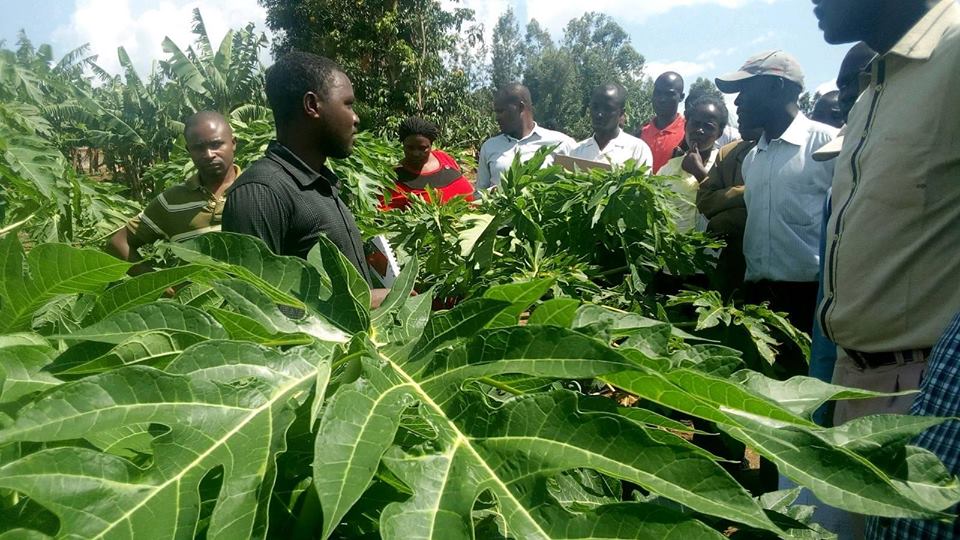
Nyamira County residents are turning to pawpaw farming to top up earnings from bananas to shield themselves against coffee losses resulting from poor markets and theft of the beans from factories.
According to Nairobi Coffee Exchange (NCE), coffee prices has been on a downward trajectory this year due to low quality beans coupled with depressed international prices with the price of a 50-kilogramme bag dropping to Sh8,800 from a high of Sh9,800 in the recent past.
Farmers in Nyamira North Sub-county, who previously predominantly grew coffee as the main cash crop, are taking advantage of the expanding hospitality industry in the Kisii region to increase revenue bases.
Mose Nyambane of Geturi Village, Magwagwa, has more than 200 bananas and about 50 pawpaw trees, which are now suppressing the neglected cotton bushes in his farm.
From the scattered pawpaws, the farmer said he makes more than Sh2,500 every month from the continuous harvest of the fruits.
“I little knew about the pawpaws until World Vision introduced them to me like other farmers here. I did not want to risk cutting a section of the shamba for a crop that I was not sure of its performance. That is why they are scattered among other crops. For the two years I have had them, I have seen a higher earning potential than coffee,” he said.
Nyambane picks between 50 and 100 fruits every month, and he sells them at prices ranging from Sh50 to Sh100- depending on the size.
Pawpaws cannot pollinate themselves. He has two male pawpawas against the about 100 females.
Apart from the flowers, Farmbiz Africa counted up to 60 fruits in some trees, with a potential of weighing more than one kilo each after harvesting.
RELATED ARTICLE: Pawpaw farming promises brighter future for a missionary
RELATED ARTICLE: An IT consultant finds alternative cash from passion and pawpaw farming
RELATED ARTICLE: Western Kenya-based agro-processing firm offers ready market for pawpaw farmers
Cutting down coffee
Nyangaresi Nyamira is another farmer, who has 14 trees standing beside his 10-beehive house in Borioba.
His story is the same as that of Nyambane.
“Apart from weeding the tree does not require much attention. The only caution one should take is to avoid wounding the tree because it will start rotting, creating a hollow tunnel at the centre up to the head,” Nyamira said.
Coffee bushes in his farm also stand unattended, as he contemplates cutting them down.
Pawpaws consumed in Kisii town, Nyamira, Keroka and other urban areas in the region are ‘imported’ from other counties.
That is what is giving these farmers a competitive edge as retailers come round in search of the fruit, which they buy on wholesale. Besides selling them at local open markets, the fruit are also sold to high-end and middle class hotels.
Caption: Farmers being taken through pawpaw farming during a farmers' field day in Western Kenya. Photo courtesy.
















Comments powered by CComment